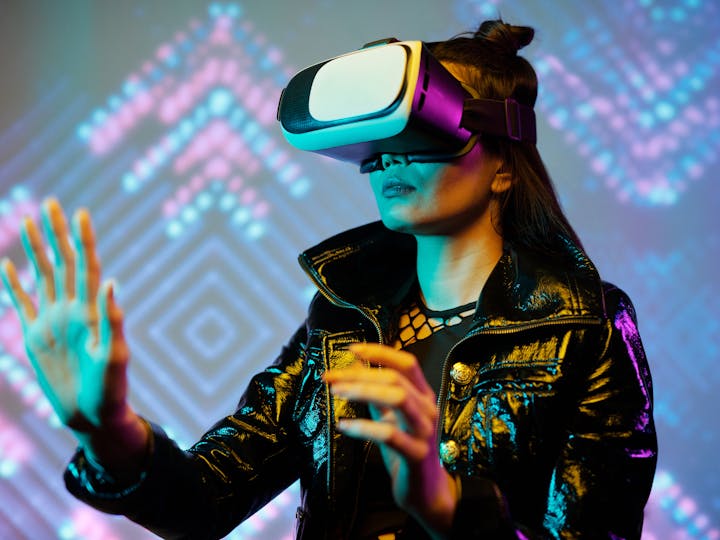From smarter NPCs to player-personalised worlds, AI is turning code into creativity.
Introduction: A New Era of Game Creation
Game development is undergoing a transformative revolution—driven by artificial intelligence (AI). No longer confined to just automating repetitive tasks, AI is actively reshaping the way games are imagined, designed, and experienced. Whether it’s the behaviour of an enemy in a role-playing game or the scenery generated in a virtual landscape, AI is stepping in as the silent architect behind the curtain.
But how exactly is this technology influencing such a creative domain? And more importantly, what does this mean for gamers and developers alike?
In this article, we explore how AI is shaping game development from the ground up—bringing automation, intelligence, creativity, and limitless scalability to the heart of gaming. Whether you’re a hobbyist, a developer, or simply someone fascinated by the future of gaming, you’ll discover how AI is not just a tool but a game-changer.
AI in Game Development: The Basics
What Is AI in Game Dev?
AI in game development refers to the use of machine learning, deep learning, and algorithmic systems to automate tasks, create realistic behaviours, and improve player experiences. This includes everything from simple scripting of enemy actions to complex neural networks that generate game content dynamically.
Procedural Content Generation (PCG)
World Building on Autopilot
One of the most significant uses of AI is procedural content generation (PCG). This allows developers to generate vast game worlds, levels, dungeons, maps, and quests with minimal manual input.
Benefits:
- Saves time and budget.
- Increases replay value through dynamic environments.
- Creates unique, non-repetitive gameplay.
Example: Minecraft and No Man’s Sky use procedural generation to offer almost infinite game worlds.
Smarter NPC Behaviour
From Scripted to Self-Learning Characters
AI allows Non-Playable Characters (NPCs) to behave in a more human-like manner. Gone are the days when enemies would simply charge forward without strategy. Today’s AI NPCs can:
- Learn from the player’s moves.
- Adapt to changing environments.
- Make decisions based on probabilities, goals, and player choices.
Example: The Alien in Alien: Isolation adapts its behaviour, making every encounter unpredictable and thrilling.
Player Personalisation: Adaptive Gameplay
Games That Learn Your Style
AI algorithms can track how a player interacts with a game and adjust mechanics accordingly. This creates a tailored experience that boosts engagement and satisfaction.
How it works:
- Tracks player skill, preference, and emotional state (using biometric data in advanced cases).
- Adjusts difficulty dynamically.
- Recommends in-game content or rewards.
Example: Left 4 Dead’s “AI Director” adjusts enemy spawns and level tension based on player behaviour.
Voice and Chat AI in Games
Talk to Characters Like Never Before
Natural Language Processing (NLP) has allowed game developers to create characters that understand and respond to human speech. Whether via typed chat or voice, AI-driven conversations are opening doors for deeply immersive storytelling.
Example: AI companions that can hold real conversations, give quest hints, or joke around.
AI in Visual and Audio Design
Auto-Generated Art, Animation, and Sound
AI tools now help create:
- Character animations using motion capture data and predictive modelling.
- Background music based on in-game actions.
- Sound effects with spatial and emotional precision.
- Textures and environmental visuals through neural networks.
Tools used: NVIDIA’s GANverse3D, RunwayML, and Unity’s ML Agents Toolkit.
Automation of Testing and Debugging
Finding Bugs Before You Do
Testing is a major time sink in game dev. AI bots can simulate thousands of gameplay scenarios rapidly, identifying glitches, frame drops, and balance issues with high accuracy.
AI Testing Benefits:
- Reduces need for manual testing.
- Cuts production time.
- Increases game stability and polish.
Predictive Analytics for Game Design
Know What Gamers Want Before They Do
AI can process enormous datasets from past game releases, beta testing, and player feedback to predict:
- Which features will be most popular.
- Where players might get stuck.
- What parts of a game will cause churn.
This allows developers to make data-backed decisions from concept to launch.
The Human-AI Collaboration
Enhancing, Not Replacing, Creativity
Despite fears, AI isn’t replacing developers or artists—it’s empowering them. Developers use AI as a co-creator, leaving more time for storytelling, narrative arcs, and gameplay innovation.
Creative examples:
- AI suggests alternate game endings.
- It can generate poetic lore.
- Helps prototype games in days instead of weeks.
In the Spotlight: stellarspins real money online casino australia
One area where AI is particularly influential is in the online casino world. Brands like stellarspins real money online casino australia are leveraging AI to optimise not just game design but also user experience, security, and personalisation.
Here’s how:
Dynamic Personalisation
AI tracks player behaviour to recommend slot games, bonuses, and promotions tailored to individual preferences—creating a seamless and satisfying user journey.
Game Fairness & Security
Advanced AI systems monitor gameplay in real-time to detect patterns that suggest cheating or unfair play. It also ensures compliance with responsible gaming regulations.
In-Game Assistance
Just like in narrative-driven video games, AI chatbots guide players through onboarding, troubleshoot issues, and even provide strategic tips.
Predictive Bonuses
Using data and AI-driven predictions, stellarspins can suggest when to offer free spins or exclusive deals to retain loyal players—boosting both retention and satisfaction.
AI isn’t just a trend for platforms like stellarspins real money online casino australia; it’s a competitive edge, driving innovation and creating a better casino experience.
Ethical AI in Gaming
The Balancing Act
While AI opens countless possibilities, it also raises serious ethical questions:
- Data privacy: What happens to biometric or behavioural data?
- Manipulative design: Is AI being used to encourage unhealthy gaming habits?
- Bias: Are AI systems trained on biased data, limiting representation?
Responsible development and transparency are crucial to building trust and fairness in AI-powered gaming.
Accessibility Through AI
Games for Everyone
AI is enabling developers to design games that adapt to players with disabilities:
- Real-time speech-to-text for the hearing impaired.
- Predictive difficulty scaling for motor impairments.
- AI voiceovers and descriptions for the visually impaired.
This ensures more people can enjoy immersive, inclusive gaming experiences.
The Future: AI-Generated Games?
Will AI Design Entire Games?
We’re getting closer to games that are entirely generated by AI—from plot to design to mechanics. Already, platforms like GPT-4 and MidJourney can co-create elements of a game. The future may see indie devs (or even players!) using AI to:
- Design full-scale RPGs.
- Create new game genres.
- Adjust every playthrough into a unique story.
We’re standing at the edge of a “democratised” game development revolution.
Game Development Platforms Embracing AI
Several major engines and companies are already integrating AI into their toolkits:
Unity & Unreal Engine
Both offer AI toolkits for:
- Behaviour trees.
- NPC pathfinding.
- Real-time optimisation.
Roblox
Roblox’s open developer tools allow AI plugins for smarter user-generated content.
AI-First Platforms
Some startups are even building engines that rely entirely on AI for game creation.
Challenges of AI in Game Dev
Even with all the promise, challenges remain:
- Training AI: It requires lots of data and fine-tuning.
- Creativity limits: AI can generate, but it lacks emotional intelligence.
- Regulation: The industry lacks formal AI usage standards.
Solutions lie in transparency, open-source collaboration, and continuous education.
AI and Indie Developers: Leveling the Field
Indie developers once struggled with scale—but AI has flipped the script.
With access to:
- Free AI art generators.
- Code auto-completion tools.
- Procedural design libraries.
A solo developer can now compete with mid-sized studios. Creativity and story matter more than manpower.
Gamers as Co-Creators
In the age of AI, players are no longer just consumers. AI-driven sandboxes allow users to:
- Create their own characters, maps, and missions.
- Interact with dynamic narratives that change based on input.
- Even collaborate with AI to build entirely new game rules.
Games like Dreams and Roblox are early examples of this player-AI collaboration.
Conclusion: AI Is the New Game Master
From indie gems to billion-dollar franchises, artificial intelligence is rewriting the rules of game development. It’s making games smarter, more responsive, more personalised, and increasingly accessible. While there are hurdles to clear and ethics to consider, the trajectory is undeniably exciting.
As we move into a world where games can feel, adapt, and evolve—thanks to AI—the boundary between developer and player begins to blur. In this new landscape, creativity is infinite, worlds are endless, and everyone can play a part in shaping the game.


